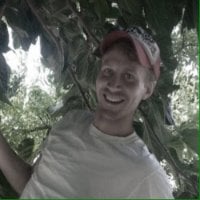
Research[edit | edit source]
My research includes identifying open source appropriate technologies OSAT that can help make improvements in the lives of people around the world in the areas of food production, water and resource management, geographical information systems GIS, renewable energy, [remote sensing], unmanned aerial vehicles [UAV] 3D-printing and RepRap, environmental sustainability and international community and economic development. As a Returned [Peace Corps] Volunteer (RPCV), I am particularly interested in technologies that can be that can be easily applied in developing countries where they can have a greater impact on the livelihoods of people.
Research Interests[edit | edit source]
Food Production[edit | edit source]
Specialized 3D-printable components designed for aquaponics systems built with reused or new standard and widely available materials such as [IBC] totes, blue barrels and PVC piping.
- Nozzles, sprayers, aerators
- Hose connections and valves
- Tank dividers
- Crayfish and Prawn habitats
Remote Sensing, GIS and UAV[edit | edit source]
Application of [LIDAR] with GIS and UAV in the remote sensing of agriculture, water and resource management, environmental sustainability, renewable energy, disaster response and spatial mapping.
- Agricultural productivity and monitoring
- Conservation evaluation and monitoring
- Land surveying
- Renewable energy location site selection
- Post-disaster assessments
- 3D mapping of hazardous locations
3D Printing[edit | edit source]
Expand on the existing catalog of 3D-printable designs available to the OSAT community in the areas of food production, water and resource management, renewable energy, remote sensing, UAVs, environmental sustainability and community development.
- Greenhouse and aquaponics components
- Irrigation components
- Components for wind or solar energy units, battery bank housings, wire clamps
- Brackets and housings for sensors
- Replacement UAV components, custom UAV bodies and components, custom UAV charging stations
Renewable Energy[edit | edit source]
Develop localized micro-grid capabilities through network of wind and solar energy power systems in conjunction with coordinated battery bank system.
- Micro-grid systems for rural communities
- Power sharing/trading system
- Portable mini-power systems
Current Research Projects[edit | edit source]
Aquaponics[edit | edit source]
Developed educational aquaponics system for the biology department at Adrian College to use in entomology, botany, biology and ecology courses. Students utilize the system to study micro-environments, life cycles, water quality, pest management, plant and fish propagation, caretaking and cultivation techniques. The system was designed to fit the space available in the greenhouse, be as simple as possible to operate and maintain, be modular to accommodate future expansion and showcase all 3 aquaponics techniques (NFT, DWC and Grow media).
-
Fish tank of the educational aquaponics system at Adrian College in the greenhouse at Peele Hall.
-
Clarifier (settling) tank of the educational aquaponics system at Adrian College in the greenhouse at Peele Hall.
-
Volcanic rock grow bed of the educational aquaponics system at Adrian College in the greenhouse at Peele Hall.
-
Deep Water Culture (DWC) rafts of the educational aquaponics system at Adrian College in the greenhouse at Peele Hall.
-
Nutrient Film Technique (NFT) tubes of the educational aquaponics system at Adrian College in the greenhouse at Peele Hall.
-
Current growing space of the educational aquaponics system at Adrian College in the greenhouse at Peele Hall.
Previous Research Projects[edit | edit source]
- Closed-loop Agriculture – Efforts in Armenia: The Kut Rural Development Plan, Master’s Project, Armenia 2015
- Home Zone Traffic Calming Plan, Transportation Planning, Chicago 2012
- Historical Preservation Residential Development Plan, Graduate Institute of Building and Planning, National Taiwan University, Workshop of Environmental Planning and Design, Taiwan 2011
- Wildfire Suppression Agent Based Model (ABM), Complexity Based Modeling, Chicago 2011
- Evacuation Analysis: Geospatial Approach to Mitigating Disasters A Case Study of New Orleans, Transportation Planning, Chicago 2010
- Pipeline Earthquake Resiliency Testing, Department of Urban Environment Systems, Chiba University, GIS and Remote Sensing for Disaster Mitigation, Japan 2010
- Village of Lyons Quarry Redevelopment Plan, Plan-Making Studio, Chicago 2010
- Taxi Demand Research Analysis, Transportation Management, Chicago 2009




